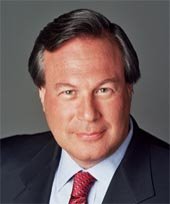
This is quite a story. A British secetary working in France writes about her work, her private life and her boyfriends in a blog called
La Petite Anglaise.
Then her employer finds out abut the blog and is not happy, in spite of the fact that she hasn't used her name or her employers name.
She is sacked.
And that's when the newspapers pick up on her tale. It doesn't hurt that she's an excellent writer and her musings about her boss and life in the office are quite hilarious.
Here is what the
Daily Mail in the UK writes:
Her internet diary recounts the everyday life of an English secretary in Paris and is avidly read by up to 3,000 people each day.
Writing under the pseudonym
La Petite Anglaise, the thirty-something's thoughts on love, work and life as an unmarried mother have gained an international following.
Read extracts from her blog hereBut now the anonymous English secretary has lost one vital ingredient feeding her internet musings. For the 33-year-old has allegedly been sacked for bringing her British employers into disrepute with the internet diary - even though it does not name her or them.
But she will shortly glean fresh material for her popular web diary as she is bringing a test case under French labour law to contest her dismissal from leading accountancy firm Dixon Wilson.
Today La Petite Anglaise can be revealed as Catherine Sanderson, who grew up in York and has spent all her working life in the French capital.
Catherine, the mother of a three year old daughter, said yesterday she was made to feel 'like a naughty schoolgirl called up before the head' when suspended two months ago because of La Petite Anglaise diary.
Yesterday, as news of her dismissal was revealed, her blog "hits" more than trebled to 10,000.
Today, more than 220 followers of her website recorded their messages of regret at her dismissal. Most condemned her employers for targeting the world of the blogger and urged Ms Sanderson to keep fighting.
But a few warned her that being online carried the same degree of responsibility as any other form of communication.
Ms Sanderson says she set up the blog "on a whim" more than two years ago, having originally come to France to teach English on a university exchange programme "and somehow never left".
Now, thanks to the blog communications which cost her her job, the course of her legal challenge - one of the first involving bloggers' rights - can be followed by a global audience if she chooses to continue her Bridget Jones-style saga.
"The phrase used, 'gross misconduct,' usually means you've done something terrible like you embezzle money from your firm," she said.
"I was so shocked that I didn't stick up for myself, even to point out that the whole blog was written anonymously. I was given five minutes to gather my belongings and leave.
"I didn't mention the name of the company, and I still don't believe many people would have identified where I worked.
"If anyone did stumble across my blog there was no way of them telling where I worked, even if they could see my picture.
"I was stunned when I was called in and sacked. I offered to take the material down , but that wasn't good enough."
Her French lawyer has now lodged a claim - one of the first of its kind in France - with a French industrial tribunal claiming compensation of up to two years' pay, about £54,000, from Dixon Wilson.
Catherine, a French and German graduate from Bath University, added: "It is really a matter of principle as far as I am concerned, in defining the boundaries between personal and professional activities, where the line should be drawn for bloggers who touch on the events of their working life in their writing."
The company, with offices in London and Paris, refused to comment but allege that she made herself, and therefore the firm, identifiable by including her own photograph on the weblog.
They also complained that she used office time to work on it.
Catherine, who tells her visitors to her so-called 'blogsite' she was adopted at birth, says she began her blog ' as a bit of fun' two years ago.
"I was trapped at home with my young daughter. I couldn't leave the house so began writing. All of it is true and honest, although I have to admit that some if it is slightly embellished. I thought it fine to use a bit of artistic licence."
Her musings centre on life in Paris with her three year old daughter 'Tadpole,' her former relationship with the child's French father 'Mr Frog,' and include details of a brief but intense 'affair' with 'Jim', a man she met on her website.
No explicit content
Sexual encounters are occasionally mentioned but with no explicit details and Catherine shirks at being linked with Bridget Jones, the fictional character immortalised by Renee Zellweger.
"I am not particularly keen on that comparison," she said. "I think my diary's a little bit more thoughtful and not quite so desperate."
Her blog describes life at Dixon Wilson's French office as 'an oasis of Britishness in Paris,' with a framed portrait of the Queen on the wall, Tetley's tea and 'watches set to GMT'.
She recounts accidentally showing her cleavage to the London office while organising a video link and recounts someone breaking an 'unwritten rule' by pulling his cracker before the senior partner at the office Christmas lunch.
Catherine describes one senior partner as 'very old school,' a man who wears 'braces and sock suspenders, stays in gentlemen's clubs when in London, and calls secretaries "typists." "I can't prevent myself from mirroring his plummy Oxbridge accents," writes Catherine.
Dixon Wilson is apparently particularly angry about the continual references to her immediate boss, partner James Howes. He was said to be 'incandescent with rage' at what she had written about him.
"James is an old school type and does not expect this kind of thing to be written by a cheeky secretary," said one source at the Paris office.
Catherine insisted: "They are intended as humourous anecdotes, nothing more."
She admits she sometimes worked on her blog during work time but only when she had no work to do. "Other employees would often read books at their desk if things were quiet."
Catherine said the reason for her dismissal was subsequently reduced to 'failure of confidence' and now, after two months paid notice, she is unemployed.
"My initial fear was that I would be left penniless. I'd just bought a new flat and, as a single mother, needed my salary. I want to work again, of course, but my only fear is that I'll Be identified and won't be able to get another job," she said.
Daily Telegraph Paris correspondent Colin Randall, who first wrote about the plight of "La Petite Anglaise", today used his blog to ask whether print journalism is about to be smothered by the online age and "the march of the New Media".
One blogger responded: "I find it interesting that bloggers claim to be 'the new media' and then complain about being terminated from their positions at companies for being bloggers: would you expect to be terminated if you 'moonlighted' for the traditional media?"
But another asked: "Where does the influence your employer has on your day-to-day life stop?"
On Ms Sanderson's own website, the vast bulk of correspondents supported her, but one blogger warned: "You do have to be so careful with publishing these days, and it's a mistake to think that blogging, because it is so easy, is any different."
Another wrote from Canada: "I do not intend for this to sound mean-spirited, but seriously, did you not see this coming?"
But, despite playing down the Bridget Jones connection, she now has literary ambitions of her own and wants to write a book. "I've already worked out some proposals for publishers."



































